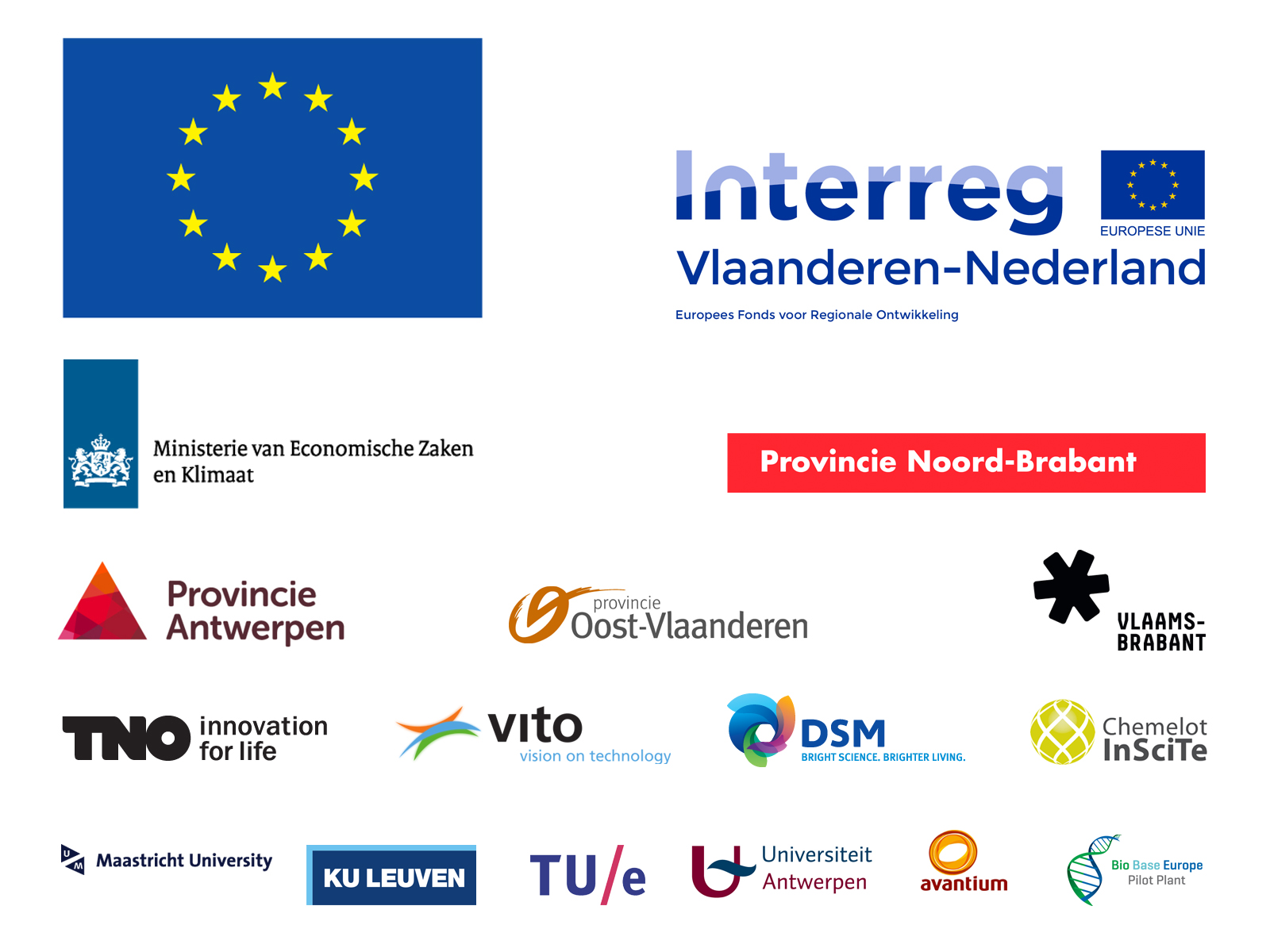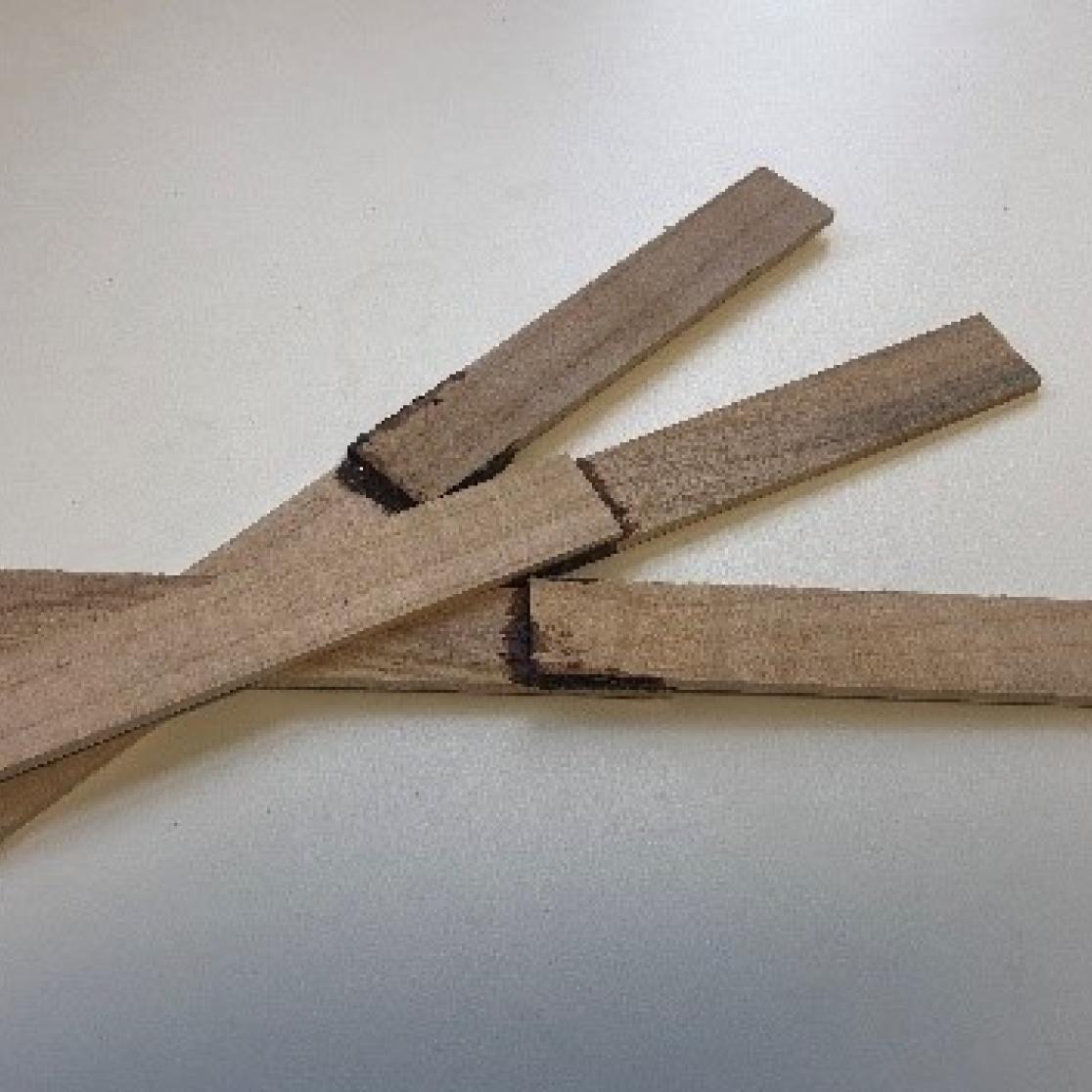MODINT is an industry association of 600 textile companies. The Aachen-Maastricht Institute for Biobased Materiasl (AMIBM) is a research institute of Maastricht University and the RWTH Aachen. Chemelot Innovation and Learning Labs (CHILL) is the Center of Expertise in the field of chemistry.
AMIBM and CHILL are located on the Brightlands Chemelot Campus in Sittard-Geleen.
The partners of the BioTex Fieldlab work in close collaboration with two industrial producers of biopolymers; Avantium and Corbion and with SME’s from the textile industry, sofar being; Star Sock, Desso, Bonar, Van Puijenbroek, Edel Group, Rinos, Auping and Best Wool Carpets. The participating companies originate from various parts of the country and have their own production and R&D department in the Netherlands and see market opportunities for biobased products.
Recruiting top talent
Within the project Biobased Materials Plus, the involved parties will develop teaching modules and research projects for students. These will be brought under in the innovative Research Based Learning learning environment of the master course.
The innovative education concept Research Based Learning combines academic education and business to the point of creating a unique learning and work environment that contributes to the biobased economy. This research driven beta education is new and is thé form of choice for the Master Biobased Materials. By using complex research issues from the industry and university research groups for the complete program, academic skills are connected to R&D in the biobased business.
Besides this, a HBO honors program and a pre-master program are being developed to create continuous learning from HBO to Academic level, ensuring that local talent is optimally exploited. There are also efforts to develop modules for professionals based on the concept ‘lifelong learning’ within the segment of biobased materials.
Taking the needs of international students into account, an International Students & Support Office will be set up. This office will take care of recruitment, facilities and the outflow into the region.
"The goal of this project is to improve the connection between education and work field. By connecting international students to companies and knowledge institutions within the biobased economy in the south of Holland during and after their education we hope to bind them to our region.”
- Menno Knetsch
Project leader/course manager of the master Biobased Materials, Maastricht University (2016-2017)
Biobased Materials Plus
Knetsch: “We are developing this course on the Brightlands Chemelot Campus due to the excellent facilities for education, research and support. And because of the intense collaboration with the businesses on the campus. Situating ourselves on the campus gives us an extra advantage in attracting both national and international students and professionals for our course.”
Twan Beurskens, depute of Economics and knowledge infrastructure for the Province of Limburg: “The development of the biobased economy is also very important to the Province of Limburg. I am very happy that European funds have been made available via OP-Zuid to make courses like this available in our province. It makes Limburg attractive for international talent to study and work.”
“On the Brightlands campuses, the university links research & education to social engagement and knowledge transfer. By cooperating with other parties from the education, government and business sector, we can add value to this vital infrastructure in Limburg and the Euregio. We focus on core issues such as biobased materials, in which research and educational programs connect seamlessly to the economically relevant topics in the region. By doing this we contribute positively to social developments that will help create new jobs.”
- Martin Paul
President of Maastricht University
OP-Zuid
The Operational Program Zuid-Nederland (OP-Zuid) is a collaborative subsidy program of the provinces Zeeland, Noord-Brabant and Limburg, together with the cities Breda, Tilburg, ‘s-Hertogenbosch, Eindhoven, Helmond, Venlo, Sittard-Geleen, Heerlen en Maastricht. It is an economic stimulans program that is funded with almost € 186 million by the European Fund for Regional Development (EFRO) and € 46 million by the government. OP-Zuid’s main goal is to improve the competitive power, economic growth and grow employment opportunities in the south of the Netherlands.
The project Biobased Materials Plus will run until 2019 and has been granted € 820,000 by OP-Zuid, the Operational Programma Zuid-Nederland, a European subsidy program for the South of the Netherlands. The total project budget is € 2,3 million.
Prototype composite parts for automotive and home appliances will be demonstrators to illustrate the much broader range of industrial applications, e.g. furniture, construction and sports goods. Our developments will enable to use biobased composites for high end applications, thus contributing to using sustainable and renewable raw materials. Being able to produce, process and sell these novel SRPCs and related composite intermediates will be a clear competitive advantage. First estimates predict a market of at least 35 kton/year, corresponding to ca. 165 M€, within 5 years.
BIO4SELF is a well balanced mix of end users (large enterprises to maximise impact), technology providers (mainly R&D driven SMEs), R&D actors (RTDs and universities) and innovation support (specialised SMEs). It covers the required expertise, infrastructure, and industrial know-how to realise the innovation potential of the novel high performance biobased SRPCs, both during and beyond the project.
Also in the case of biological tissue the end product is ‘alive’ and yields macroscopically unified product performance. In polymers however, diffusion into a unified product demands significant timescales since the atomic building blocks are connected to form long molecules. To limit this time somewhat or even to ‘gain’ some extra time, it is necessary that material developers optimize polymer materials molecularly to the various 3D print processes. Just like it has been done in the past for extrusion, injection moulding, fibre spinning etc.
The development of 3D printing to a fully appreciated production technology requires hardware and material developments, which usually go hand in hand. The developments in the field of printing technology (the ‘hardware’), are ahead of schedule, whilst the necessary material development is lagging behind. For the professionalizing and promotion of 3D printing of polymer materials, this proposed research focusses on the optimization of polymer materials on a molecular level tailored to the use in existing and still to be developed hardware.

In Dutch, the acronym BIO-HArT stands for 'Biorizon Innovation and Upscaling of Renewable Aromatics Technology'. Over the past years Biorizon has developed three commercially promising technologies for the conversion of wood, sugars and lignin into aromatics. By demonstrating the technology within this project on a larger scale, the confidence in the applicability of the technology on an industrial scale enhances and the risk to invest diminishes. Simultaneously bio-aromatics will be produced in sufficient quantities to be able to start application development routes.
For more information
Go to Biorizon website
Go to Interreg Vlaanderen-Nederland
Next step in industry-driven roadmap of Biorizon
This project is the next step in the industry-driven roadmap of Shared Research Center Biorizon. The BIO-HArT-project has got 3 goals:
- Development of optimized procedures for chemistry and process.
- Realization of generic and multi-purpose bench scale demonstrators for the 3 technologies (wood, sugars and lignin to aromatics).
- Producing samples of sugars, lignin, furans, akylphenols, mono-, di- & tri-acids, functionalized phenols and other aromatic compounds. Subsequently, together with the industry applications will be developed on the basis of these samples.
Together with the industry the project results of BIO-HArT will be further developed and eventually they will be implemented in new value chains in which multiple feedstock suppliers, chemical companies and end users will be incorporated and in which existing and new production locations will be used.
BIO-HArT UM progress dd. Oct 2018
We are involved in the BIO-HArT project in work packages 6 and 7, where we are responsible for lignin-based materials modification (WP6) and application (WP7). As a result of successful collaboration with the project partners within BIO-HArT platform: Eindhoven University of Technology, University of Leuven, University of Antwerp, Bio Base Europe Pilot Plant, VITO, DSM and InSciTe, we received 32 samples (from 0.4 g to 1.5kg) of lignin and depolymerized lignin monomers and oligomers. Our focus is to use them in adhesive resins applications.
We developed an alternative solution to state-of-art phenol-formaldehyde (PF) resins, which are commonly applied as wood adhesives.
PF resins are using harmful and toxic chemicals during the resin synthesis and release toxic volatiles upon curing when they are applied. For this reason, there is an urgent need to develop an alternative product with comparable performance. Our approach benefits over PF resins in:
- Replacing of harmful phenol by lignin based materials
- Resin curing without the release of toxic formaldehyde
- Using lignin as the only source of phenolic compounds (in PF resins only half of phenol could be replaced by lignin without significant loss of performance).
We established the proof-of-concept for adhesive resins, which have similar performance to PF resins. The methodology for novel, phenol and formaldehyde free resin synthesis was developed and we transferred the knowledge to all available lignin fractions. At this stage, we are furtherly optimizing the curing conditions, so we can achieve the best possible performance of the resins. We also started the upscaling of the process to deliver samples for the evaluation by the industrial partners, who will be eager to test our materials in their applications. Please contact katrien.bernaerts@maastrichtuniversity.nl if you are one of them.
"The BIO-HArT-project is of great importance to be able to accomplish our final goal: enable commercial production of bio-aromatic by 2025", says scientific manager of Biorizon Jan Harm Urbanus.
